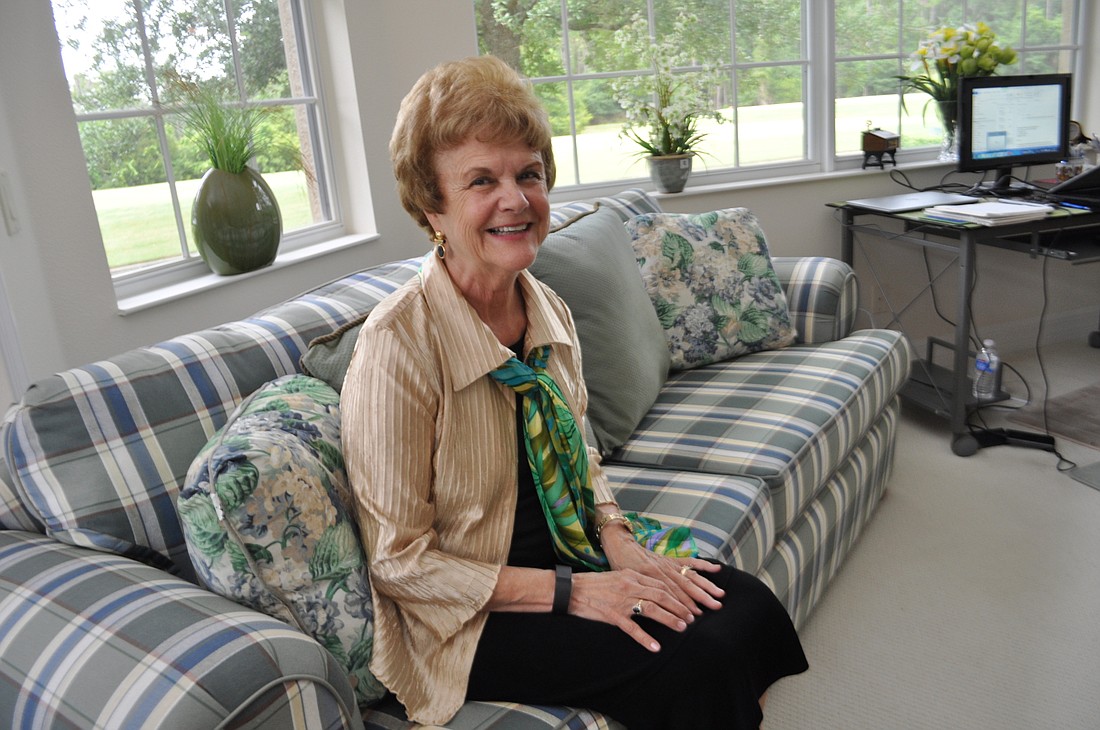- April 24, 2024
-
-
Loading

Loading

LAKEWOOD RANCH — If you had $2.8 million, what would you do with it?
Lakewood Ranch Country Club’s Cecile Lengacher, Ph.D., has an answer: Examine how meditation affects the memory and concentration of breast cancer survivors.
Armed with a grant from the National Cancer Institute and her team at the University of South Florida’s College of Nursing in Tampa, Lengacher will soon begin a five-year study of how meditation-based stress reduction affects breast cancer survivors’ ability to push past what many call “chemo-brain,” a chemotherapy-induced condition that clouds memory and concentration. Lengacher says it affects more than 25% of chemotherapy patients and can last for as little as a few weeks or as long as 10 years.
“Many of us go through life always thinking about what we’re going to do next,” said Lengacher, who practices yoga and meditation on a large rug in her office 30 minutes every other day. “We teach our patients you never know what’s beyond that door, so it’s important to (live in the present). It’s that moment-to-moment mindfulness that increases quality of life and, we’re predicting, memory.”
The study will examine 300 patients from Moffitt Cancer Center and the USF Health Morsani Center for Advanced Healthcare and place them into one of three groups: mindfulness-based stress reduction (MBSR), education attention (control group) and usual care.
In the MBSR group, instructors teach participants three types of meditation plus a few basic yoga exercises they can practice at home. The goal is to teach participants to focus on the present, instead of their to-dos, fears of reoccurrence and other worries. Participants meet two hours weekly for six weeks to learn MBSR methods and must practice what they learn at home for 15 to 45 minutes a day.
The education group will serve as a control, with participants receiving two hours per week of education about cancer-related resources, including support groups, for six weeks. The “usual care” group will not attend meetings or classes and will proceed with typical post-cancer followup physician care.
After the first six months, all patients will be able to participate in the MBSR program, if they desire, said Lengacher, who survived breast cancer in 2002, two years after she began conducting MBSR-based research.
Lengacher said MBSR interrupts the stress response by increasing attention and helping individuals reassess the situation so it becomes less threatening, thus diminishing negative emotional responses. The study also will look at genetic factors.
Lengacher is already thinking of ways to expand MBSR. She’s working on another grant that looks at the delivery of the MBSR program through technology to see if cancer survivors experience the same benefits from it as they do with in-person sessions.
“It would be wonderful if mindfulness-based stress reduction might have an impact on recurrence (of cancer),” Lengacher said. “There are so many variables.”
Contact Pam Eubanks at [email protected].